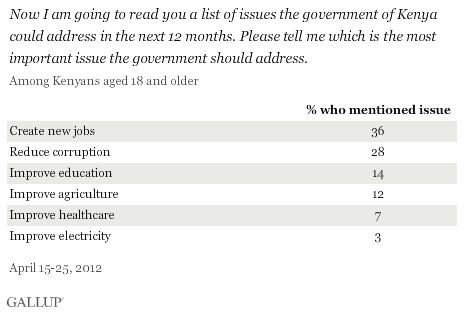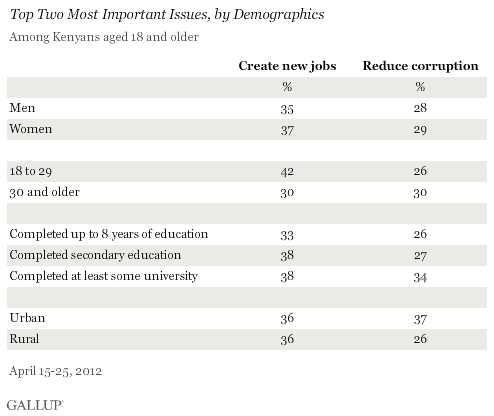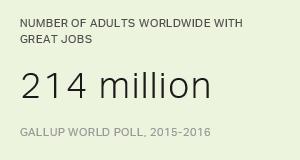WASHINGTON, D.C. -- As candidates court voters ahead of Kenya's 2013 presidential election, Gallup data reveal that campaign messages that address job creation and corruption will likely resonate most with the electorate. Thirty-six percent of Kenyans aged 18 and older said in April that creating jobs is the most important issue the government should address in the next 12 months, and a statistically similar 28% named reducing corruption as the most important issue. Smaller percentages picked other issues such as improving education (14%) and improving agriculture (12%).

Kenyans' top two priorities prior to the presidential election are essentially identical to the issues topping Americans' to-do list for the next U.S. president. Such similarities in perceptions underscore the importance of these issues for potential voters, regardless of where they live in the world. Gallup findings show that all Kenyans regardless of gender, education, or even level of urbanization view jobs and corruption as the two key issues their government should address. Young people aged 18 to 29 are the only group for which job creation is substantially more important than reducing corruption.

Overall, these findings show the importance the presidential hopefuls should attach to these issues. Candidates need to clearly articulate the policies their government would implement to tackle corruption and create an environment conducive to greater employment.
For complete data sets or custom research from the more than 150 countries Gallup continually surveys, please contact us.
Survey Methods
Results are based on face-to-face interviews with 956 adults, aged 18 and older, conducted April 15-25, 2012, in Kenya. For results based on the total sample of national adults, one can say with 95% confidence that the maximum margin of sampling error is ±3.9 percentage points. The margin of error reflects the influence of data weighting. In addition to sampling error, question wording and practical difficulties in conducting surveys can introduce error or bias into the findings of public opinion polls.
For more complete methodology and specific survey dates, please review Gallup's Country Data Set details.
